Editor's note: On March 12, 2020, the World Health Organization (WHO) declared COVID-19 a pandemic, and as of Thursday (May 7), about 200 countries and regions have confirmed over 3,595,000 cases, according to the WHO. On CGTN's live program "COVID-19 Frontline," we invite medical workers and experts from China's epicenter Wuhan and from all over the world to share their experiences and take questions from social media in the hope of providing more information for those battling the pandemic.
As the coronavirus pandemic continues to wreak havoc around the world, Nepal witnessed a surge in infections over the past week. As of May 7, the total number of confirmed cases in the country reached 99 with no deaths reported. The Nepali government has decided to extend the national lockdown till May 18 and continue its suspension of international flights till May 31.

Chinese front-line doctors share COVID-19 treatment experience with Nepalese peers. /CGTN
Chinese front-line doctors share COVID-19 treatment experience with Nepalese peers. /CGTN
In the latest episode of CGTN's live stream program "COVID-19 Frontline" held on Wednesday, doctors from the Third Hospital of Hebei Medical University were invited to share their first-hand experience in treatment and precautionary measures in Wuhan with medics from Nepal.
Live: Chinese front-line doctors share COVID-19 treatment experience with Nepalese peers
Hou Yanqi, the Chinese Ambassador to Nepal, sent video greetings. "The pandemic is a common threat to humankind and only by enhancing coordination and cooperation can we forge strong synergy needed to defeat COVID-19," she said. "China and Nepal are close neighbors linked by mountains and rivers, the solidarity and mutual assistance between China and Nepal in the face of the pandemic have fully demonstrated profound friendship between the two countries and peoples."
02:51
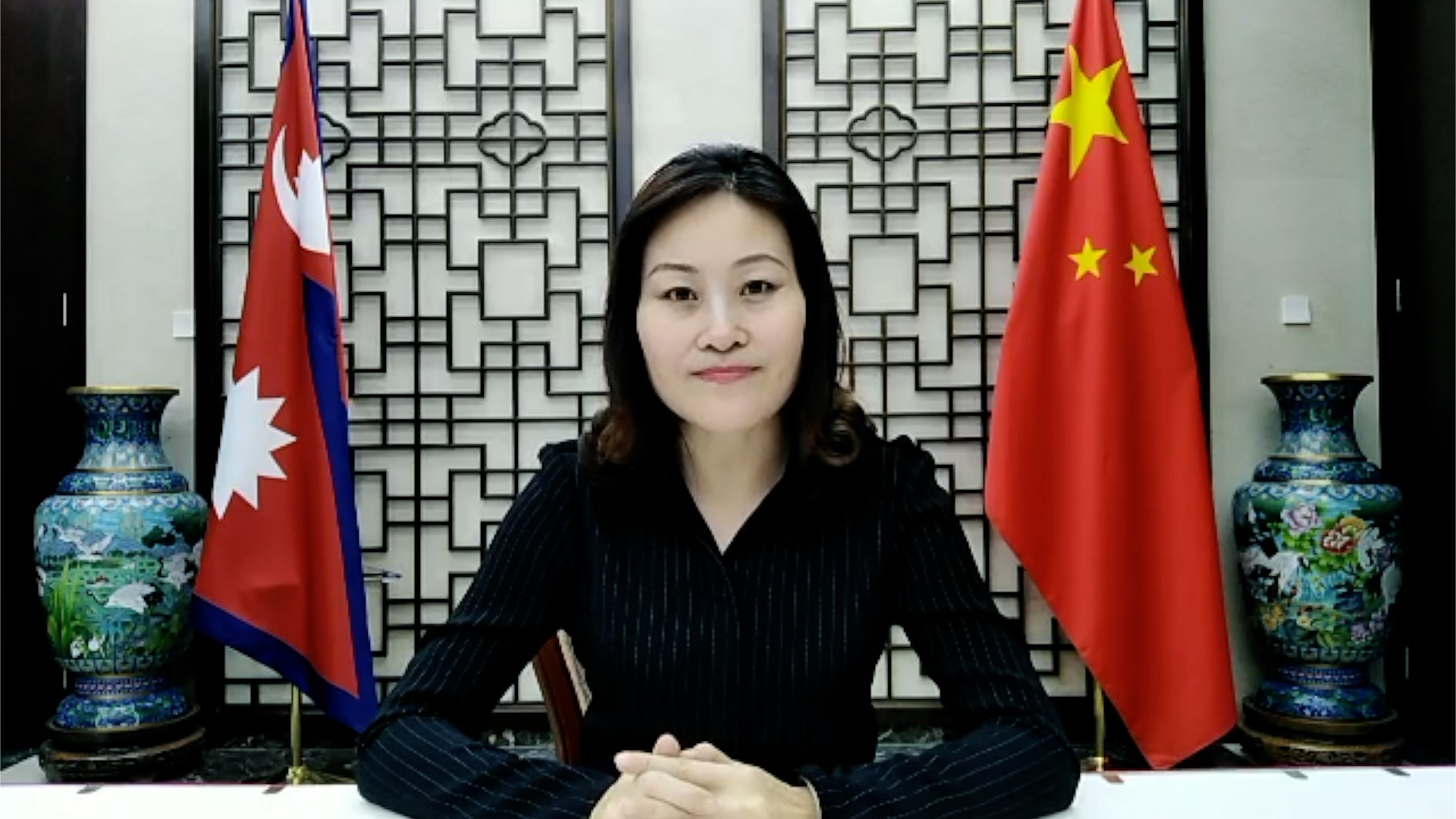
Bhanu Bhakta Dhakal, Minister of Health and Population of Nepal, said the novel coronavirus has become a big challenge to the world and the experiences gained by China represent a very important asset. He said the program would be helpful in sharing knowledge and experiences that can contribute to coronavirus containment and case management.
01:46
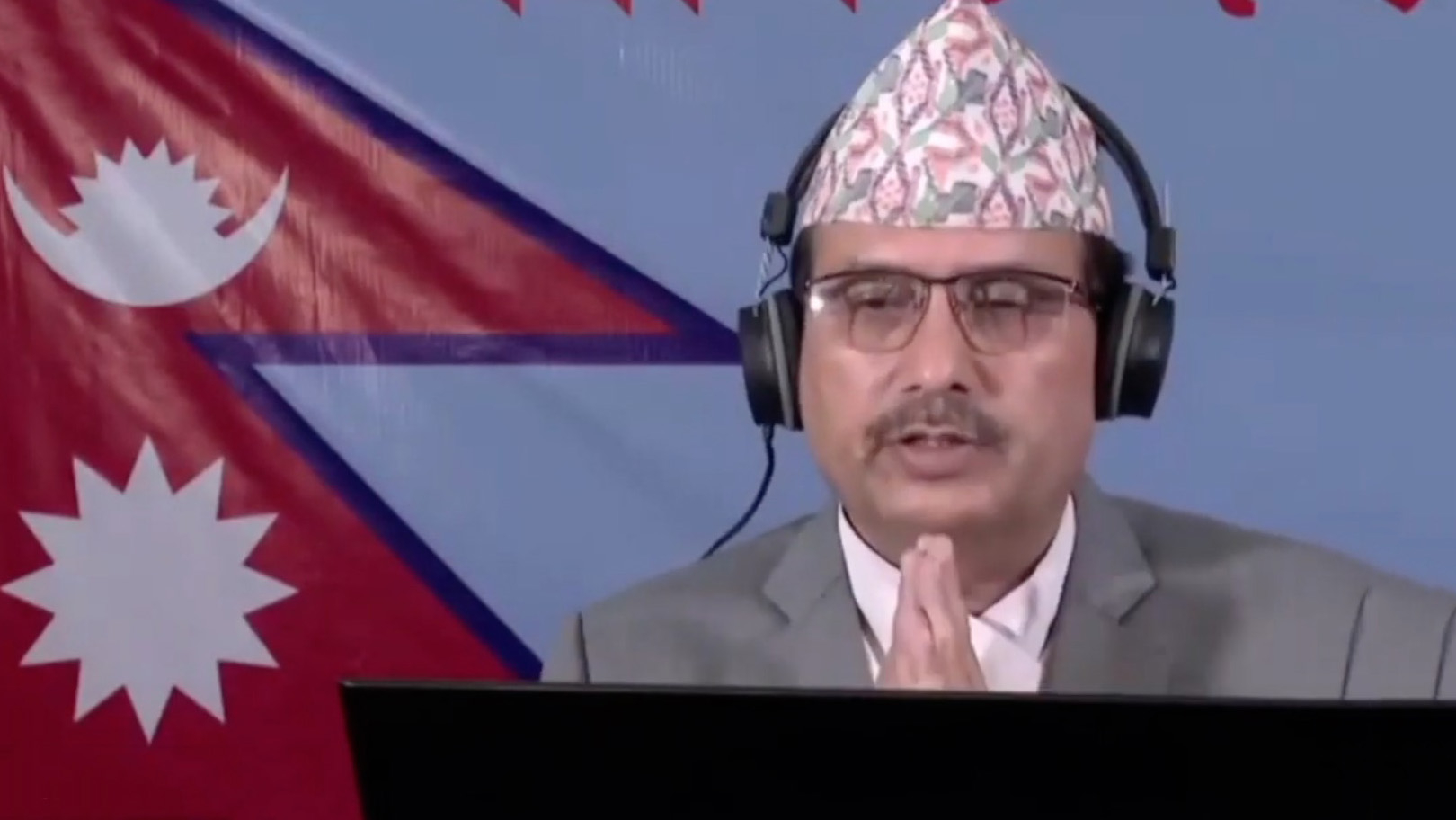
Treatment for non-COVID-19 patients during the pandemic
Dr Santosh Paudel, head of the National Trauma Center of Bir Hospital, Nepal, had some questions regarding the management of non-COVID-19 patients during the pandemic.
Dr Yang Nan said the key point is to distinguish whether the patient is infected with COVID-19 or not. When a patient comes to the outpatient department, they are categorized into two categories depending on whether they have symptoms and epidemiological history. The patients with symptoms are sent to a special fever clinic to get tested. If they test positive for coronavirus, they will be sent to isolation rooms for further observation.

Dr Yang Nan shared slides during the live streaming and discussed admission and treatment procedures for non-COVID-19 patients. /CGTN
Dr Yang Nan shared slides during the live streaming and discussed admission and treatment procedures for non-COVID-19 patients. /CGTN
But there are asymptomatic patients, so all patients who need surgery should undergo a nucleic acid test, antibody test and chest CT. Then the operation can be arranged, according to the result.
Plasma therapy and the use of anticoagulant drugs
Dr Anup Bastola, chief consultant physician of Teku Hospital, Nepal, wanted to know about plasma therapy and the use of anticoagulant drugs on critically ill patients.
Dr Yang Nan, attending physician of the respiratory department of Third Hospital of Hebei Medical University, said some severe patients develop a hypercoagulable state and D-Dimer-based coagulation factors appear abnormal. So early anticoagulation, which may block clotting formation, is very important.
Dr Zhang Xinliang, deputy director of the Emergency Department of the same hospital, talked about the effectiveness of convalescent plasma. The therapy is used on severe COVID-19 patients. The general injection dose is 200 milliliters. The high titers of neutralizing antibodies in plasma can be effective in reducing symptoms and mortality. But he also pointed out that not all hope can be put into plasma therapy. It has a lot of side effects such as allergic reactions and fever. So the convalescent plasma should only be used for patients who are critically ill with COVID-19.
02:06
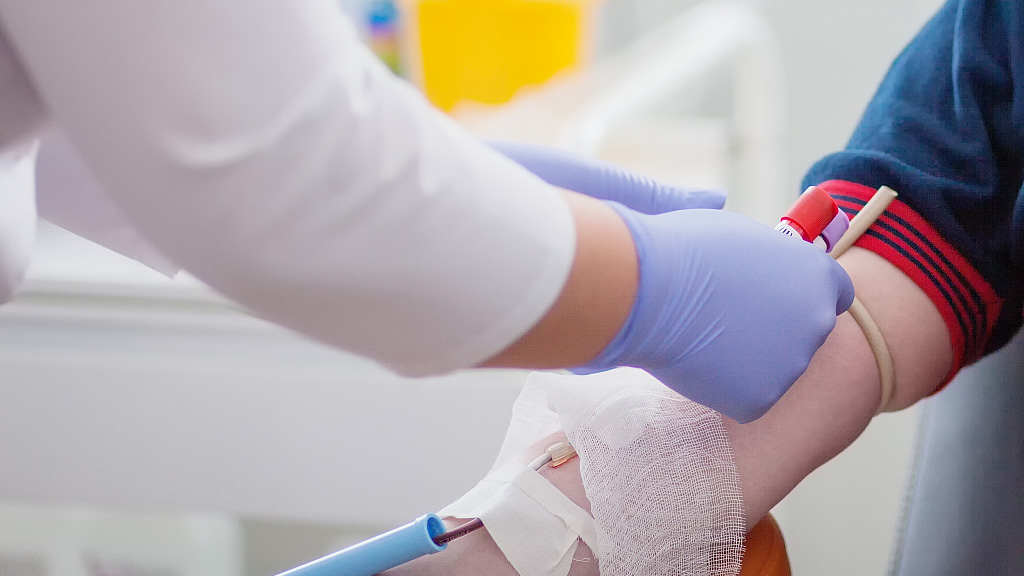
"The source of plasma is scarce," Dr Zhang added. The timing of the usage is also very important. When used late on severe patients, it can be less effective.
The psychological impact of lockdown
Dr Khem Bahadur Karki wanted to know about the psychological impact for people under lockdown.
Wang Fei, vice president of the Third Hospital of Hebei Medical University, said China has not carried out a very extensive survey on the psychological conditions of the masses under lockdown. But the survey on the psychological conditions of medical workers in Wuhan shows that some medical workers have different degrees of anxiety and depression. Besides, many patients lost their loved ones and may have different degrees of psychological trauma. Therefore, it is very important to provide them emotional care and psychological support.
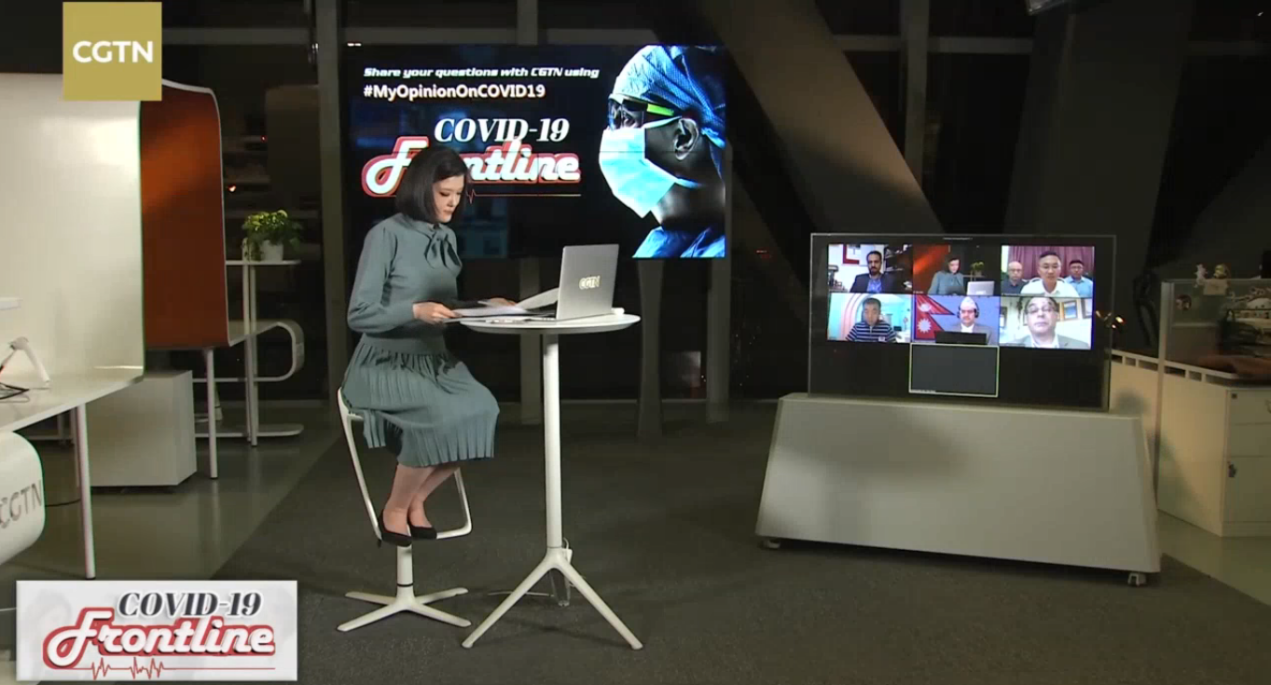
CGTN's live streaming program "COVID-19 Frontline." /CGTN
CGTN's live streaming program "COVID-19 Frontline." /CGTN
Keeping medical workers safe from COVID-19
Dr Anup Bastola, chief consultant physician of Teku Hospital, asked about the reasons why some Chinese health care workers were infected with COVID-19 when protective measures are strictly enforced?
Dr Zhang Xinliang explained that in the early stage of the outbreak, due to the lack of understanding of the virus and the shortage of the personal protective equipment, some of the medical workers in Hubei Province got infected. But in the middle and later stages when protection measures were strengthened, none of medical staff including the 42,000 medical workers dispatched to Hubei province, got infected.
01:25
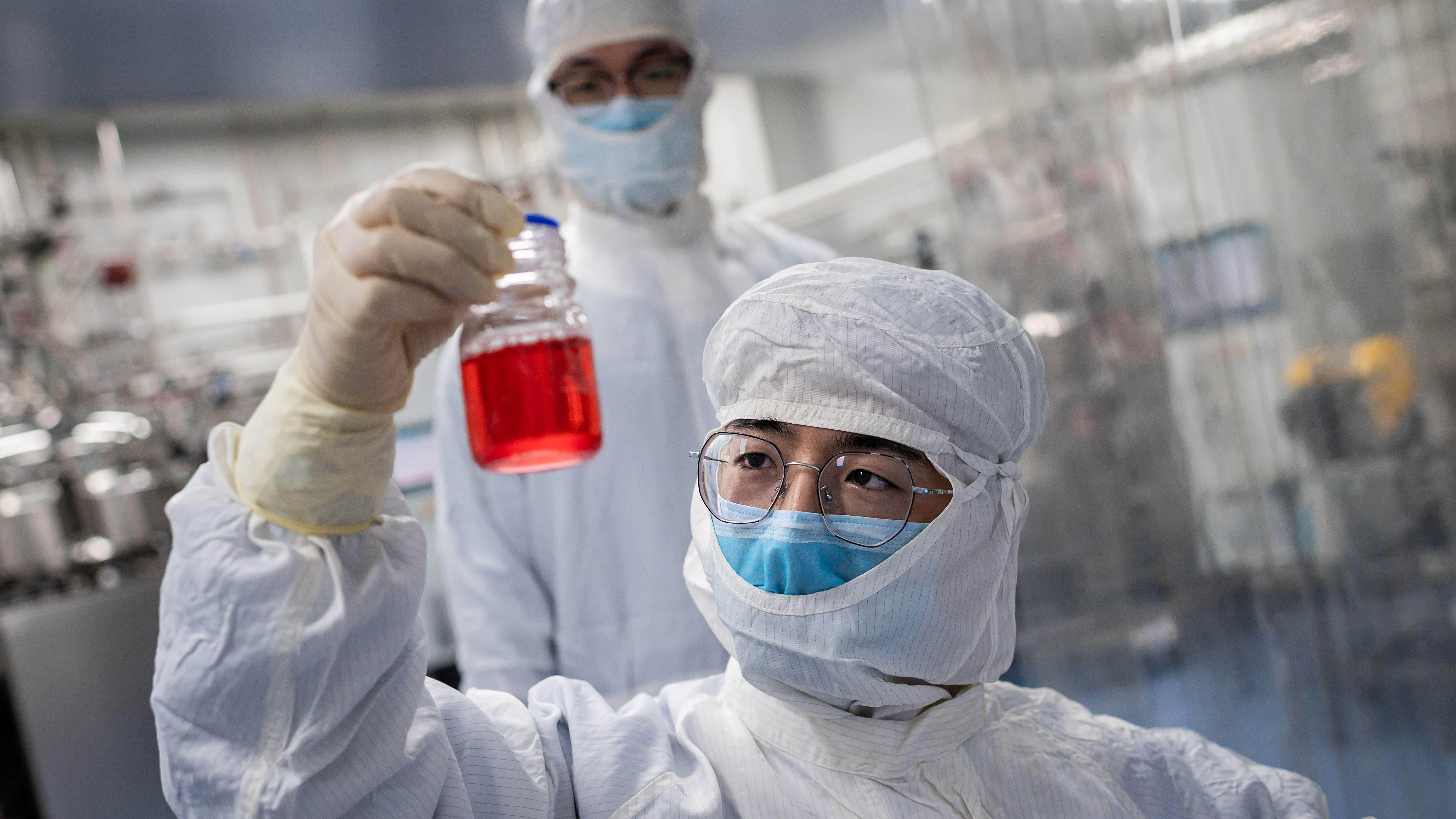
In later episodes of "COVID-19 Frontline," more doctors and experts from Wuhan will join in to share their experiences with colleagues from other parts of the world. If you have any questions regarding COVID-19, you can share with us by using #MyOpinionOnCOVID19 on Facebook.
Videos by Zeng Hongen
Cover image by Du Chenxin